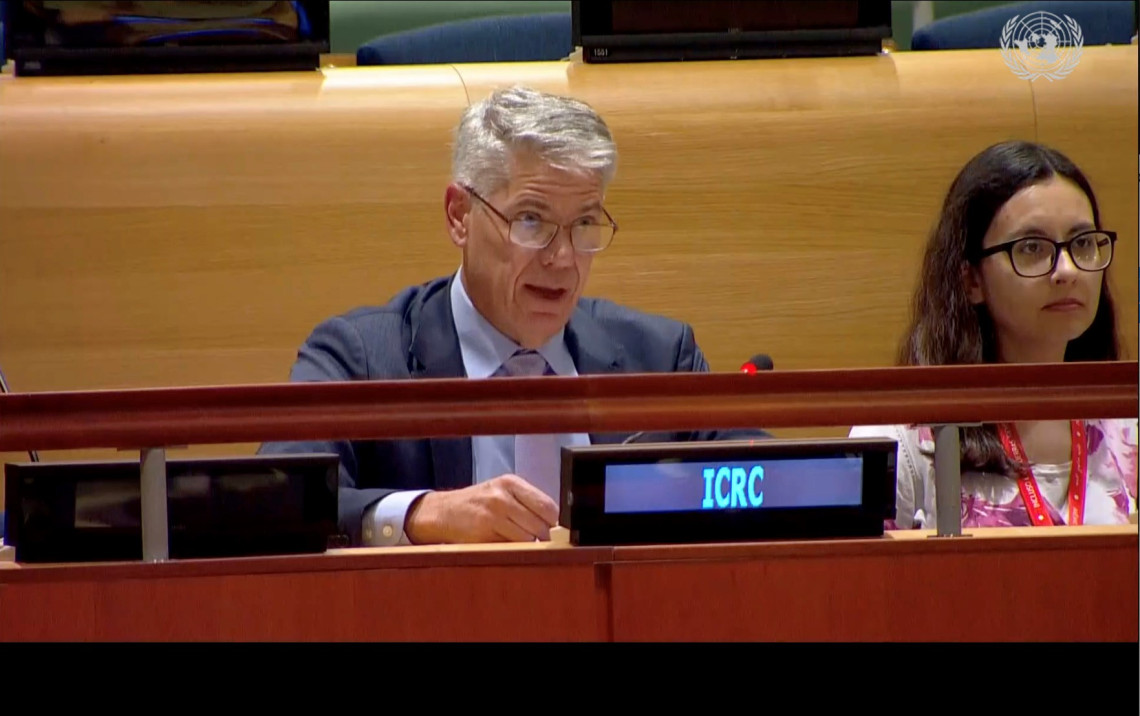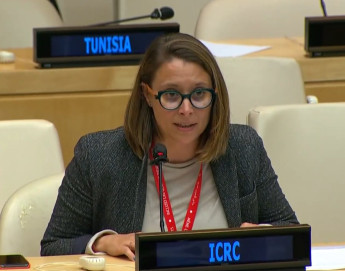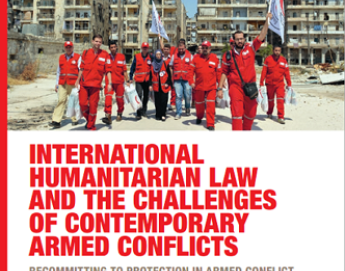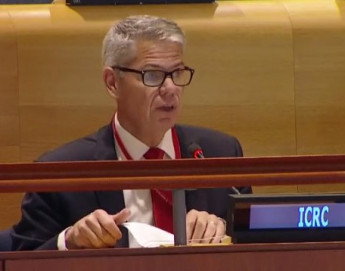
Counter-terrorism measures can impact humanitarian action negatively
[Mr, Madame] Chair,
Terrorism not only violates international humanitarian law (IHL), it negates the basic principle of humanity. Terrorism can have devastating impacts on communities and individuals. The ICRC condemns acts of terrorism, whether committed within or outside armed conflict and irrespective of their perpetrators. It is legitimate and necessary for States to take responsive action to ensure their security and that of their population.
We have seen that counter-terrorism (or "CT") measures, however, can negatively impact humanitarian action when they consider the latter as a form of prohibited provision of economic resources to listed individuals and entities, or include IHL-authorized humanitarian activities as a form of prohibited support. This in turn can have unintended consequences, such as prohibiting impartial humanitarian organizations, including the ICRC, from delivering food assistance to civilians, repairing water infrastructure, tending to the wounded, or helping vaccinate populations against COVID-19.
When various forms of interaction with listed persons and groups are considered prohibited support to terrorism outright, the ICRC may be prevented from visiting detained persons, facilitating the release of detainees, providing training on IHL, or reuniting missing persons with their families – all humanitarian activities mandated by the Geneva Conventions and IHL. When humanitarian organizations are hindered in their mandate, the consequences are grave for individuals yearning to have news of their loved ones, people in need of protection, or for humanitarian personnel.
Separate reports published this year by the United Nations University's Centre for Policy Research, the International Peace Institute, and by UN CTED, all highlighted the impact of counter-terrorism and sanctions measures on impartial humanitarian activities as well as the necessity to ensure that such measures comply with IHL.
In December of last year, the Security Council took a major step forward on Afghanistan. The adoption of Resolution 2615 established a humanitarian carve-out for both "humanitarian assistance" and "activities which support basic human needs", in a counter-terrorism linked sanctions regime. We encourage UN Member States to ensure that this carve-out is reflected in their domestic law, and encourage Security Council Member States to continue to examine the possibility to do the same in other UN sanctions regimes, including those with a counter-terrorism link.
This action would be consistent with the General Assembly's 7th Global Counter Terrorism Strategy Resolution. It affirmed the importance of seeking concrete solutions to mitigate the potential negative impacts of CT measures on impartial humanitarian action. The Assembly expressed serious concerns at the occurrence of violations of IHL while countering terrorism and urged States to ensure that CT measures do not impede humanitarian action, including medical activities, and engagement with all relevant actors as foreseen by IHL.
In recent years, Member States themselves have taken measures to better protect the humanitarian space from the unwanted consequences of CT measures in national legislation, often exempting activities carried out by impartial humanitarian organizations. The European Union has exempted impartial humanitarian organizations referenced in IHL treaties from the 2017 Directive on Combatting Terrorism. The African Union's "African Model Anti-Terrorism Law" references and protects humanitarian assistance done in an impartial manner without adverse distinction.
Our calls to UN Member States are:
- First, ensure that counter-terrorism resolutions at the UN continue to underline that all CT measures shall comply with IHL. They could also reflect Additional Protocol I to the Geneva Conventions, which requires States bound by the Protocol to "allow and facilitate" rapid and unimpeded humanitarian relief, which is found in many context-related Security Council and General Assembly resolutions, but not often in CT-related Security Council or General Assembly language.
- Second, we recommend the inclusion of standing and well-crafted carve-outs in CT resolutions and national legislation. These carve-outs would specify that the restrictions do not apply to exclusively humanitarian activities carried out by impartial humanitarian actors. Future resolutions should further require states to adopt concrete and practical measures to ensure impartial humanitarian organizations are allowed to protect and assist populations in need.
- Third, stakeholder dialogues should be encouraged to ensure that those drafting and implementing CT measures are aware of their unintended consequences. We have seen a number of such national dialogues, and interest in their use by other States, in recent years.
Decisive, bold action in these three areas would demonstrate much-needed political will to protect and serve the people who need and depend on an efficient and effective humanitarian response and those who provide it. We know this can be done. The ICRC stands ready to work towards overcoming the challenges of terrorism measures and armed conflict, and to continue delivering humanitarian action.
Thank you very much [Mr, Madame] Chair.




